10 Best Herbal Capsules For Viral Hepatitis

Herbal capsules have gained attention as potential complementary therapies for managing viral hepatitis, particularly in supporting liver health and reducing inflammation.
Certain herbs, such as milk thistle, turmeric, and licorice root, are believed to possess hepatoprotective properties that may aid in liver function and detoxification. While some studies suggest these herbs may offer beneficial effects, their efficacy and safety for viral hepatitis require further scientific validation. It is important to note that herbal capsules should not replace conventional medical treatments but may be used under professional guidance as part of an integrative approach.
Patients should always consult with healthcare providers before incorporating herbal supplements into their hepatitis management plan.
Table of Contents
- 1. Thistle (Silybum marianum)
- 2. Turmeric (Curcuma longa)
- 3. Licorice (Glycyrrhiza glabra)
- 4. Ginger (Zingiber officinale)
- 5. Kalmegh (Andrographis paniculata)
- 6. Puncture vine (Tribulus terrestris)
- 7. St. john's wort (Hypericum perforatum)
- 8. Sweet wormwood (Artemisia annua)
- 9. Negundo vitex (Vitex negundo)
- 10. False leaf (Phyllanthus amarus)
1. Thistle (Silybum marianum)

Silybum marianum, commonly known as milk thistle, is a herbal remedy that has been studied for its potential benefits in supporting liver health, particularly in the context of viral hepatitis.
The active compound in milk thistle, silymarin, is believed to have antioxidant, anti-inflammatory, and regenerative properties that may help protect liver cells from damage caused by viral infections such as hepatitis B and C. Silybum marianum herbal capsules are often used as a complementary therapy to support conventional treatments for hepatitis, though they should not replace prescribed medical care. Research suggests that silymarin may help reduce oxidative stress and promote liver cell regeneration, which could aid in the recovery process.
However, more clinical studies are needed to fully establish its efficacy and safety in treating viral hepatitis.
2. Turmeric (Curcuma longa)

Curcuma longa, commonly known as turmeric, contains curcumin, a bioactive compound with potent anti-inflammatory and antioxidant properties.
Recent studies suggest that curcumin may support liver health and aid in the management of viral hepatitis by reducing oxidative stress and inflammation. While it is not a cure for hepatitis, curcumin may complement conventional treatments by enhancing liver function and reducing the side effects of antiviral medications. Herbal capsules containing standardized curcumin extracts are increasingly being used as a natural adjunct therapy under medical supervision.
However, it is important to consult a healthcare provider before incorporating curcuma longa supplements into a treatment regimen for viral hepatitis.
3. Licorice (Glycyrrhiza glabra)

Glycyrrhiza glabra, commonly known as licorice root, has been traditionally used in herbal medicine for its potential anti-inflammatory and antiviral properties.
Recent studies suggest that glycyrrhiza glabra herbal capsules may support liver health and aid in the management of viral hepatitis by reducing inflammation and enhancing immune response. The active compounds in licorice root, such as glycyrrhizin, are believed to inhibit viral replication and protect hepatocytes from damage. However, long-term use of licorice root may lead to side effects like hypertension and electrolyte imbalance, so it should be used under medical supervision.
While it may complement conventional treatments for viral hepatitis, it is not a substitute for prescribed antiviral medications.
4. Ginger (Zingiber officinale)

Zingiber officinale, commonly known as ginger, has been traditionally used for its anti-inflammatory and antioxidant properties, and recent studies suggest it may offer potential benefits in supporting liver health.
Herbal capsules containing zingiber officinale are being explored as a complementary therapy for individuals with viral hepatitis, particularly in reducing inflammation and oxidative stress in the liver. The active compounds in ginger, such as gingerol and shogaol, may help enhance detoxification processes and protect hepatocytes from damage. While more clinical research is needed to confirm its efficacy, some preliminary evidence indicates that ginger supplementation could aid in managing symptoms and improving liver function in patients with hepatitis.
As with any herbal supplement, it is important to consult a healthcare provider before using zingiber officinale, especially for those with existing liver conditions or on medication.
5. Kalmegh (Andrographis paniculata)
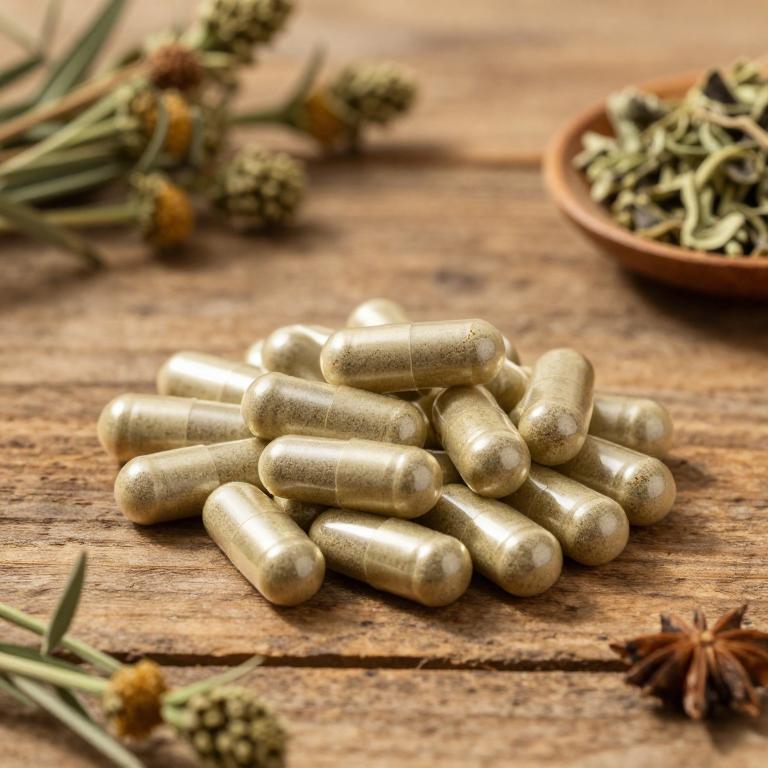
Andrographis paniculata, commonly known as "king of bitters," is a traditional herbal remedy that has been studied for its potential benefits in supporting liver health and combating viral hepatitis.
The herbal capsules of Andrographis paniculata contain active compounds such as andrographolide, which exhibit antioxidant, anti-inflammatory, and antiviral properties. These properties may help reduce liver inflammation and improve liver function in individuals with hepatitis B or C. Some preliminary research suggests that Andrographis paniculata may enhance the immune response and support the body's natural defenses against viral infections.
However, it is important to consult with a healthcare professional before using this supplement, as it may interact with certain medications or have varying efficacy depending on the individual's health condition.
6. Puncture vine (Tribulus terrestris)
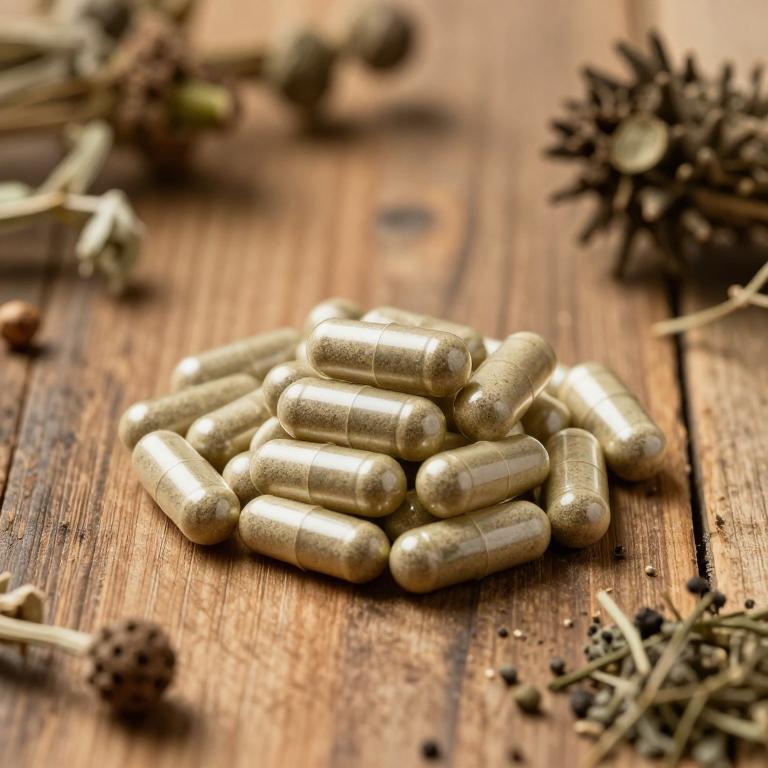
Tribulus terrestris herbal capsules are often marketed for their potential to support liver health and enhance immune function, which has led to interest in their use for viral hepatitis.
While some preliminary studies suggest that Tribulus terrestris may have antioxidant and anti-inflammatory properties, there is limited clinical evidence specifically supporting its efficacy in treating viral hepatitis. It is important to note that herbal supplements should not replace conventional medical treatments for hepatitis, as they may not be sufficient to address the underlying viral infection. Patients considering Tribulus terrestris should consult with healthcare professionals to ensure it does not interfere with existing treatments or medications.
As with any supplement, the safety and effectiveness of Tribulus terrestris for viral hepatitis require further rigorous scientific research.
7. St. john's wort (Hypericum perforatum)

Hypericum perforatum, commonly known as St. John's Wort, is a herbal remedy traditionally used for its antidepressant properties, but recent studies suggest it may also have potential benefits for individuals with viral hepatitis.
The herb contains bioactive compounds such as hypericin and hyperforin, which exhibit antiviral and anti-inflammatory effects that could support liver health. Some preliminary research indicates that Hypericum perforatum capsules may help reduce viral load and improve liver function in patients with hepatitis B and C. However, it is important to note that more clinical trials are needed to confirm these effects and establish safe dosing guidelines.
As with any herbal supplement, it should be used under the guidance of a healthcare professional, especially since it can interact with certain medications.
8. Sweet wormwood (Artemisia annua)
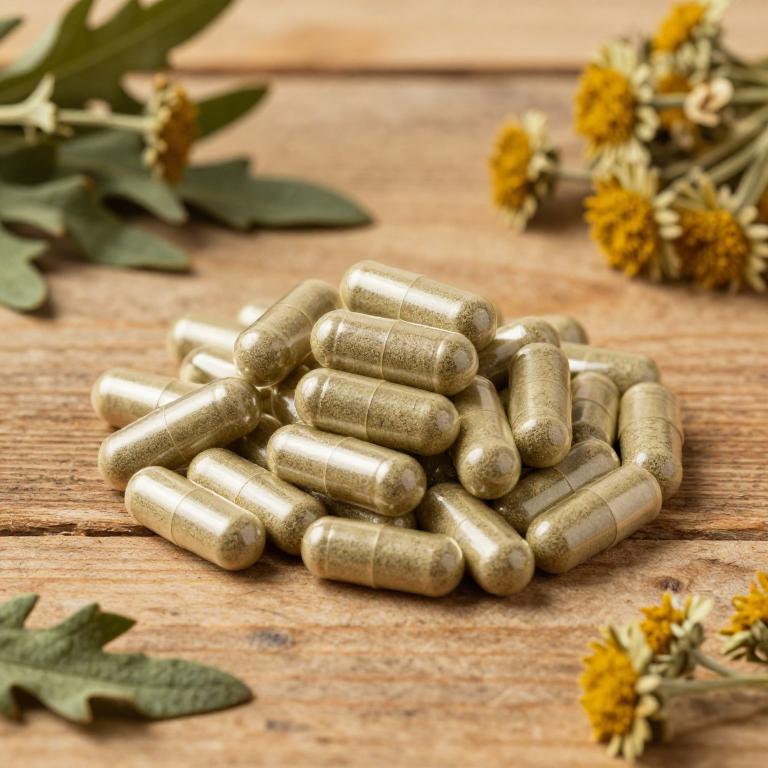
Artemisia annua, a traditional Chinese herb, has been studied for its potential role in treating viral hepatitis due to its active compound, artemisinin, which exhibits antiviral and anti-inflammatory properties.
Research suggests that artemisia annua herbal capsules may help reduce liver inflammation and improve liver function in patients with hepatitis B and C by inhibiting viral replication and modulating immune responses. While not a substitute for conventional antiviral therapy, these capsules are often used as a complementary approach to support overall liver health. However, more clinical trials are needed to fully establish their efficacy and safety in the context of viral hepatitis treatment.
As with any herbal supplement, it is important to consult a healthcare provider before incorporating artemisia annua into a treatment regimen.
9. Negundo vitex (Vitex negundo)
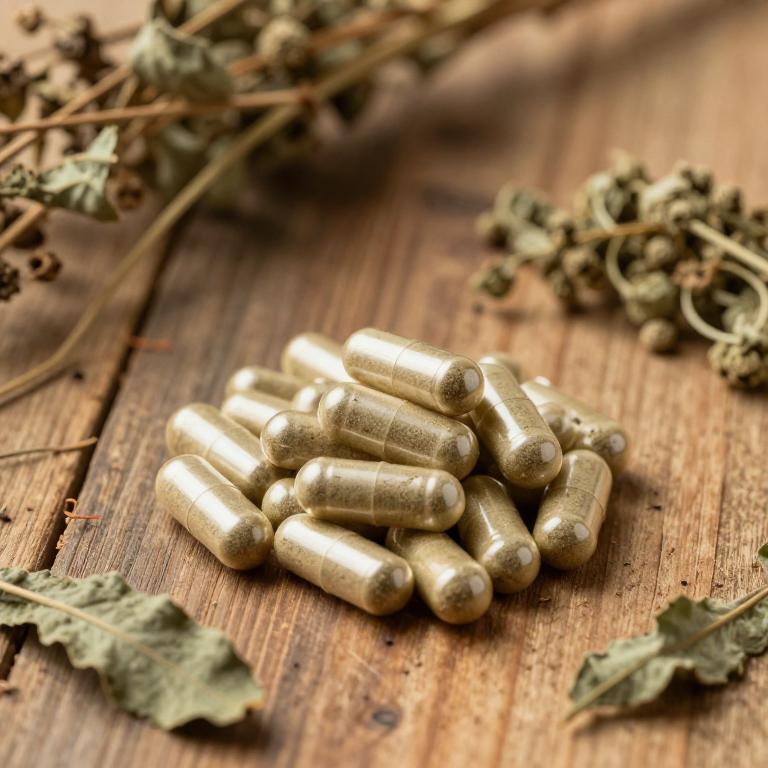
Vitex negundo, also known as chasteberry, is traditionally used in herbal medicine for its potential hepatoprotective properties.
Herbal capsules containing Vitex negundo are being explored as complementary therapy for viral hepatitis due to their antioxidant and anti-inflammatory effects. These capsules may help support liver function and reduce oxidative stress caused by viral infections. However, it is important to consult with a healthcare professional before using them as part of a treatment regimen.
While some studies suggest possible benefits, more clinical research is needed to confirm their efficacy and safety for viral hepatitis.
10. False leaf (Phyllanthus amarus)
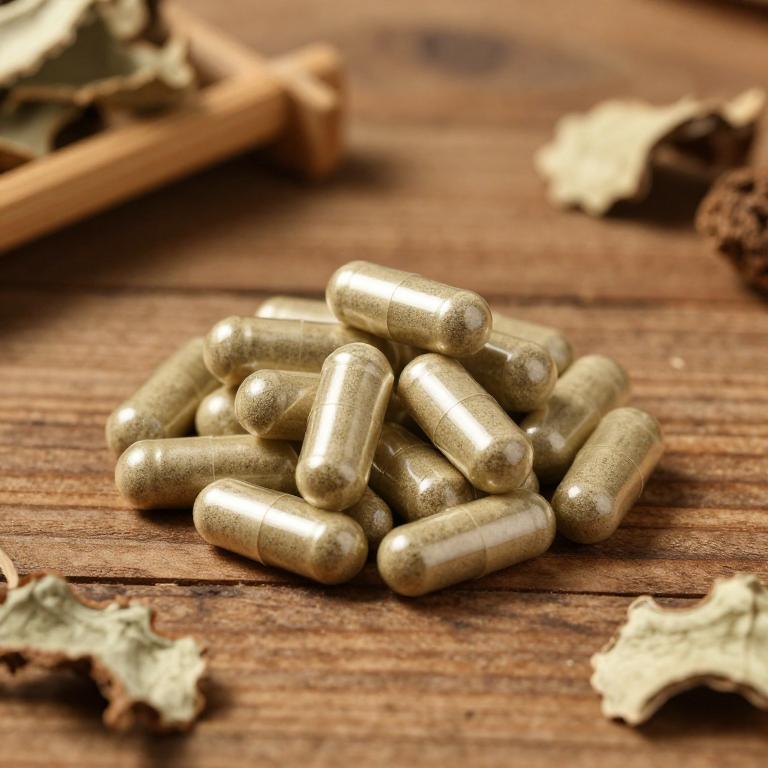
Phyllanthus amarus, commonly known as "stonebreaker," has been traditionally used in herbal medicine for its potential liver-protective properties.
Recent studies suggest that the herbal capsules containing Phyllanthus amarus may support liver function and aid in the management of viral hepatitis by reducing inflammation and oxidative stress. These capsules are often used as a complementary therapy alongside standard antiviral treatments to enhance recovery and reduce side effects. The active compounds in Phyllanthus amarus, such as flavonoids and phytosterols, are believed to contribute to its hepatoprotective effects.
However, it is important to consult a healthcare professional before using these capsules, as they may interact with other medications or have varying efficacy depending on individual health conditions.